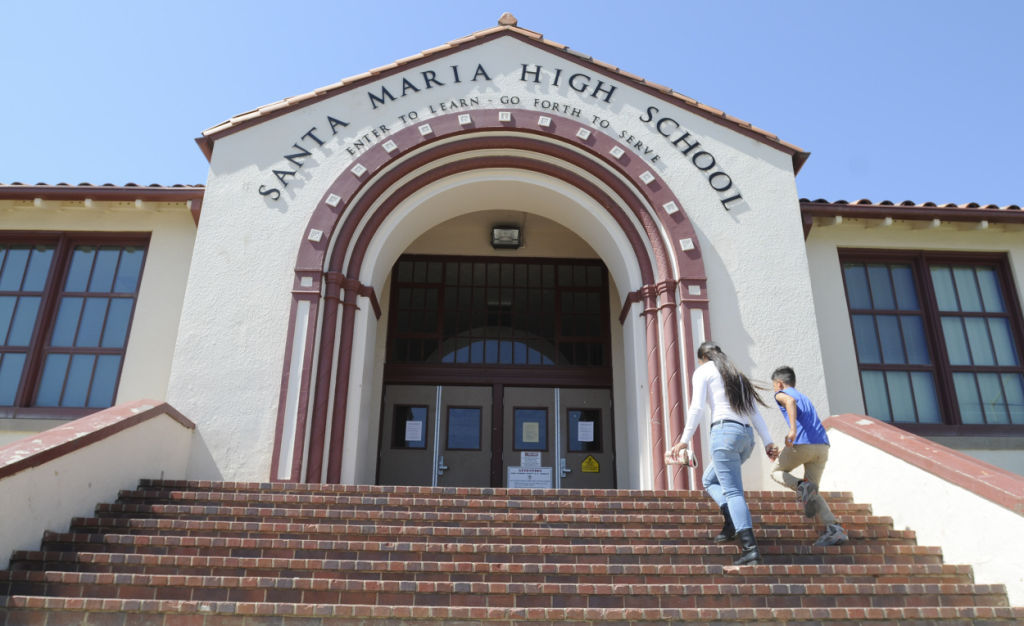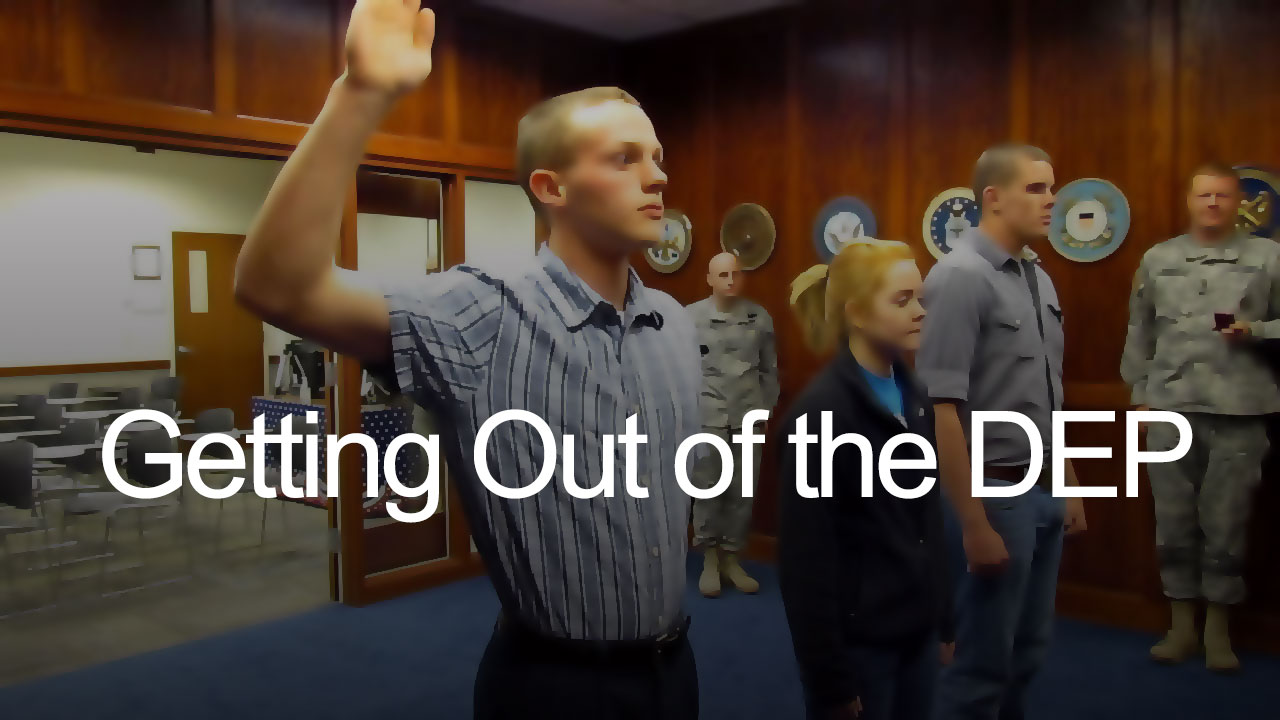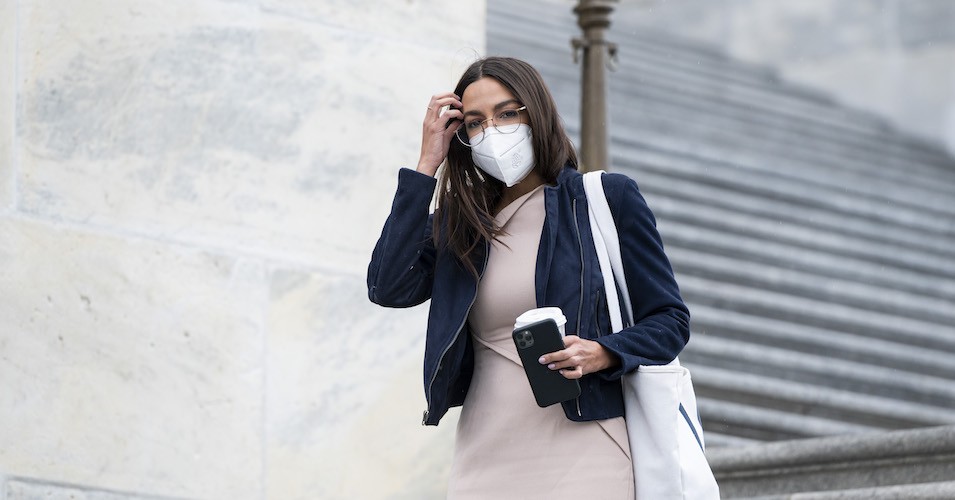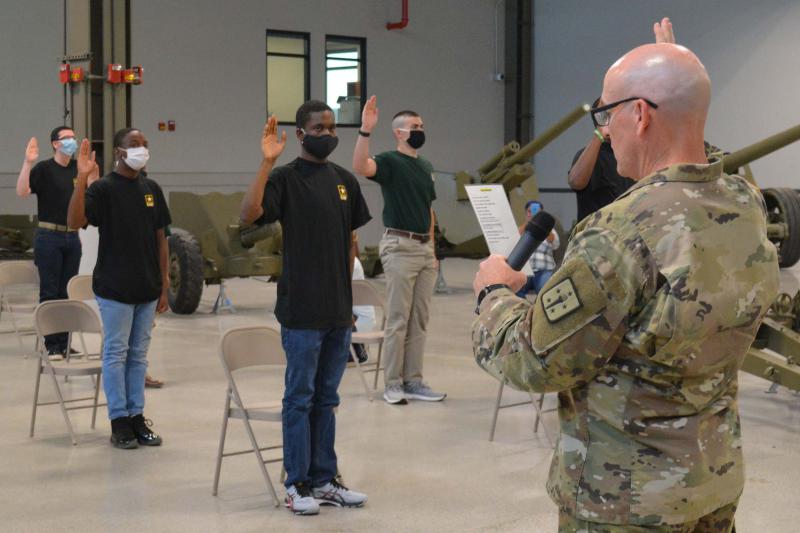 Kate Connell / Fred Nadis / Antiwar.com / español - In 2016-17, the U.S. Army visited Santa Maria High School and nearby Pioneer Valley High School in California over 80 times. The Marines visited Ernest Righetti High School in Santa Maria over 60 times that year. One Santa Maria alumnus commented, “It’s as if they, the recruiters, are on staff.” A parent of a high school student at Pioneer Valley commented, "I consider recruiters on campus talking to 14 year olds as "grooming" young people to be more open to recruitment in their senior year. I want my daughter to have more access to college recruiters and for our schools to promote peace and nonviolent solutions to conflict."
Kate Connell / Fred Nadis / Antiwar.com / español - In 2016-17, the U.S. Army visited Santa Maria High School and nearby Pioneer Valley High School in California over 80 times. The Marines visited Ernest Righetti High School in Santa Maria over 60 times that year. One Santa Maria alumnus commented, “It’s as if they, the recruiters, are on staff.” A parent of a high school student at Pioneer Valley commented, "I consider recruiters on campus talking to 14 year olds as "grooming" young people to be more open to recruitment in their senior year. I want my daughter to have more access to college recruiters and for our schools to promote peace and nonviolent solutions to conflict."
This is a sample of what high schools, particularly in rural areas, experience nationwide, and the difficulty of confronting the presence of military recruiters on campus. While our nonprofit counter-recruitment group, Truth in Recruitment, based in Santa Barbara, California, views such military access as beyond excessive, as far as the military is concerned, now that the pandemic has closed campuses, those were the good old days. The Air Force’s Recruiting Service Commander, Maj. Gen. Edward Thomas Jr., commented to a journalist at Military.com, that the Covid-19 pandemic and high school shutdowns nationwide have made recruiting more difficult than previously.
Thomas stated that in-person recruiting at high schools was the highest yield way to recruit teenagers. “Studies that we’ve done show that, with face-to-face recruiting, when somebody is actually able to talk to a living, breathing, sharp Air Force [noncommissioned officer] out there, we can convert what we call leads to recruits at about an 8:1 ratio,” he said. “When we do this virtually and digitally, it’s about a 30:1 ratio.” With closed recruiting stations, no sporting events to sponsor or appear at, no hallways to walk, no coaches and teachers to groom, no high schools to show up at with trailers loaded with militarized video games, recruiters have shifted to social media to find likely students.



 Rep. Alexandria Ocasio-Cortez on Monday proposed blocking the military from recruiting in schools, describing the practice as a predatory attack on disadvantaged children who already suffer from underfunded resources in their learning environments.
Rep. Alexandria Ocasio-Cortez on Monday proposed blocking the military from recruiting in schools, describing the practice as a predatory attack on disadvantaged children who already suffer from underfunded resources in their learning environments. 